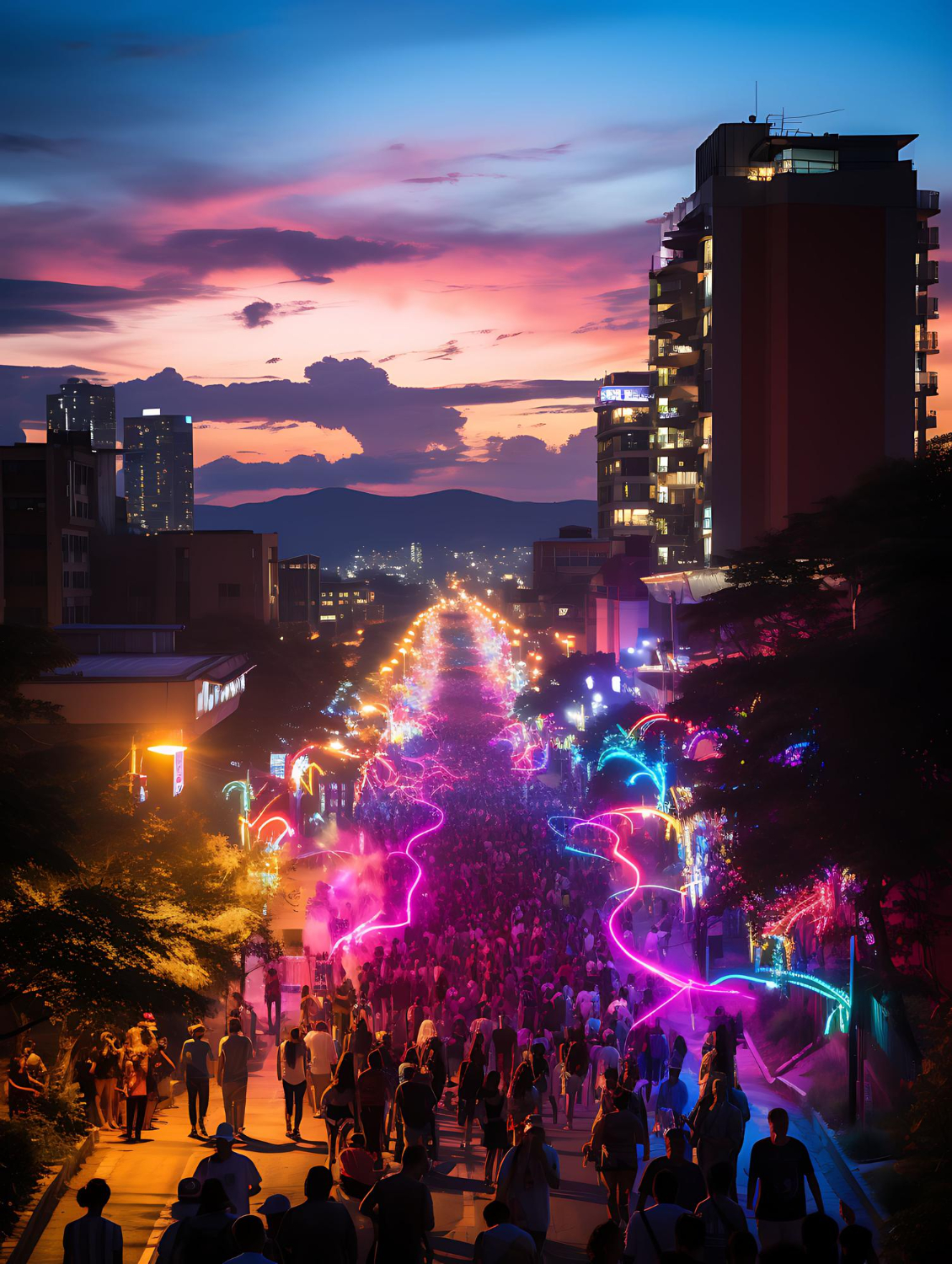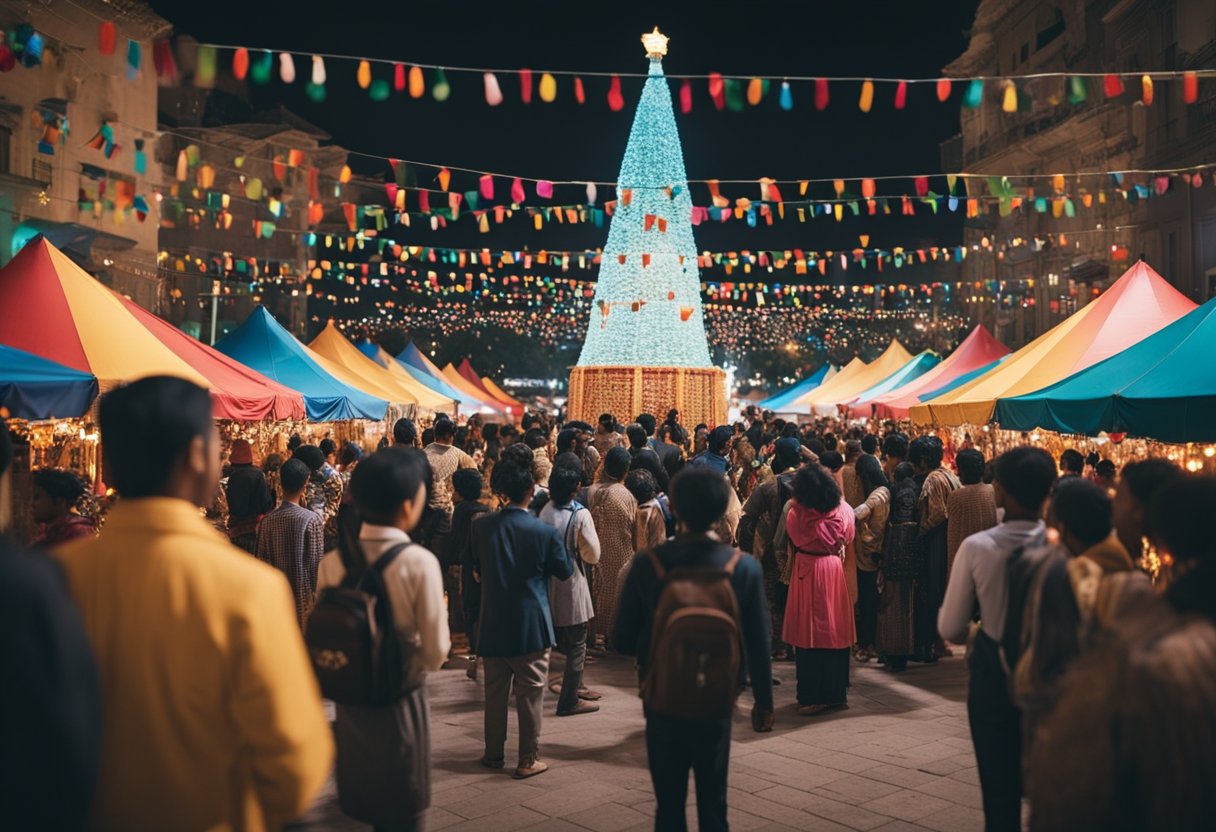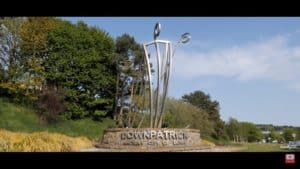The Role of Rituals and Festivals in Promoting Global Community Togetherness

Updated On: April 15, 2024 by Panseih Gharib
Rituals and festivals are the heartbeat of cultural expression, reflecting the values, beliefs, and social fabric of communities around the globe. They serve as a bridge between past and present, allowing us to celebrate our heritage and foster a sense of belonging. As platforms for community cohesion, these events provide a space where individuals can unite, regardless of their differences, to share experiences and create collective memories. This sense of unity reinforces community bonds and cultivates an environment where societal values are both expressed and shaped.
At their core, rituals and festivals are catalysts for change and development within communities. By bringing people together, they can drive economic growth, promote tourism, and shape public and private spaces. The cultural importance of these gatherings stretches beyond the festivities themselves; they have a profound psychological and social impact, weaving the fabric of communities tighter with each celebration. Event management plays a critical role in the success of these cultural phenomena, ensuring that they continue to be vibrant expressions of community cohesion and development.
Historical Significance of Rituals and Festivals
Rituals and festivals serve as vital connectors to our past, shaping our cultural heritage and identity over time. They mark significant phases in our history and assist in preserving our cultural integrity.
Cultural Heritage and Identity
Rituals and festivals are often rooted in a community’s deep history, reflecting essential aspects of our culture and identity. For centuries, these practices have enabled societies to celebrate their heritage, initiating each new generation into the traditions and values of their forebears. They act as custodians of our collective memory, ensuring that the unique characteristics of our cultural identity endure through transition and change.
- Identity: A coherent sense of self intertwined with cultural norms
- Tradition: Established patterns of behaviour significant in cultural bonding
For example, the annual rituals found within agricultural societies not only marked the seasons but also reinforced the community’s connection with the land and with each other. Celebrations like harvest festivals can be seen as a testament to this relationship, a blend of gratitude and cultural expression.
Development of Rituals and Festivals Practices

The evolution of rituals and festivals practices mirrors the dynamic narrative of human history. Initial rites were often simple and focused on key transitions such as seasonal cycles and life milestones. Over time, these practices grew more complex, often imbuing events with deep symbolism and incorporating a wide range of cultural expressions.
- Ritual: Structured, often repetitive actions with symbolic meaning
- Cultural Heritage: Legacies from the past, informing present and future generations
One can track the development of such rituals to understand how societies coped with the unknown, thus providing stability and continuity. Ceremonies such as coronations or religious rites underscore a group’s ideals, enshrining them in the continuity of tradition and history. Through these observances, communities affirm their cohesion and resilience against the tides of change.
Psychological and Social Impact
Rituals and festivals play a crucial role in enhancing community well-being and fostering a strong sense of belonging among individuals. Through shared experiences and emotional resonance, these communal practices contribute significantly to social cohesion and the overall mental health of participants.
Community Wellbeing and Mental Health
Community rituals and festivals often act as catalysts for improving community wellbeing. They offer a platform for individuals to engage in activities that promote happiness, celebration, and temporary relief from the stresses of daily life. This has a positive impact on mental health, with many individuals finding joy and satisfaction in these collective expressions of culture.
Events and celebrations allow us to express and experience intrinsic goals and aspirations, like affiliation and personal growth. Partaking in such events can satisfy basic psychological needs, which is intrinsic to our emotional response and resilience.
Social Cohesion and Sense of Belonging
The shared experience of rituals and festivities supports the development of social cohesion within communities. They provide a platform for individuals to come together, reinforcing a collective sense of identity and a stronger bond among members. The act of coming together in celebration or observance of rituals can engender a deep sense of belonging, further solidifying our social ties and commitment to one another.
Moreover, these communal activities allow us to celebrate our cultural traditions, offering continuity and a means to maintain a unique cultural identity through generations. They serve not just as entertainment but as vital threads that weave the fabric of our society, holding us together and reminding us of our shared humanity.
Community and Societal Values
In exploring the fabric that binds societies together, we turn to the rituals and festivals practices that reinforce communal bonds and societal structures.
Rites and Communitas
Rituals often serve as the glue that cements our collective identity. From the birth of a child to wedding celebrations, these milestones not only mark individual progress but also the continuance of community values. Respect for traditions is visible in the numerous ceremonies that trace the arc of life in a community. Such rites are pivotal in the creation of ‘communitas’, a term coined to describe the unbounded fellowship experienced during collective rituals.
These practices become a means of connecting generations, reinforcing the communal spirit passed down through the ages. As individuals participate, the line between the self and the group blurs, embodying the essence of communitas in the most profound sense.
Values and Respect in Society
The fostering of respect within society is deeply linked to shared values. These values are illuminated during festivals that celebrate the richness of our diverse cultures, such as those highlighted by UNESCO. During these times, societal norms are not only performed but also taught and reinforced, banding us together through shared understanding and mutual reverence.
Societal observances bring a society’s practices and values to the forefront, reflecting our reverence for our cultural heritage. Such moments underscore our appreciation for our collective legacy and the respect inherent within it.
Rituals and Festivals as Catalysts for Change
Festivals are not merely celebrations; they act as agents of change, fostering empowerment and blending cultures. These events create networks of relationships that can alter societal structures.
Social Capital and Empowerment
Festivals strengthen community bonds, enhancing social capital and empowering individuals. Through shared experiences, community members build trust and cooperative networks that underpin social movements. Collective celebration encourages a sense of belonging and collective identity, equipping communities to enact changes on both local and international stages.
Migration and the Fusion of Cultures
Festivals also play a critical role in adapting and fusion cultures during migration. They act as platforms for the exchange of cultural ideas, promoting diversity and inclusivity. The dynamic interplay of traditional and contemporary practices leads to new cultural forms, facilitating adaptation and fostering global interconnectedness.
Economic and Tourism Aspects
Festivals and community events play a significant role in the economic stimulation and tourism development of regions around the world. Recognising the dual impact of these events can help communities harness the potential of festivals for sustainable growth.
Economic Benefits of Community Events
Festivals provide myriad financial advantages, stimulating economic activity through avenues such as employment, local enterprise engagement, and infrastructure development. For instance, visitors’ spending patterns at local businesses during festival times contribute appreciably to the area’s economic vibrancy. The economic impacts of the Sturgis Falls Celebration in the USA showcase how such events can influence economic health in specific locales.
The monetisation of festivals extends beyond the period of the event itself. Preparatory activities create jobs in planning and infrastructure, and post-festival evaluations ensure sustainable economic benefits. Contributions towards urban branding through festivals are central to assessing the economic value of local festivals, with the long-term intention of sustainable development.
Tourism, Leisure and Festivalisation
Tourism connected with festivals, often termed ‘festivalisation’, transforms cities into hubs of cultural activity. By intertwining leisure with the local culture, festivals like those detailed in our exploration of festival cities and tourism enhance the allure of destinations and position culture at the heart of tourism strategies. Edinburgh’s tourist strategy exemplifies this approach, reframing the city through the lens of its festival season.
This concept has evolved into a phenomenon where tourism is interlinked with a city’s cultural identity, fostering leisure environments that draw travellers worldwide. Integrating festivals into the tourism narrative is a critical aspect of community development, supporting both the economy and the cultural landscape. It’s also about the celebration of traditions, as highlighted in our insights on the role of festivals in strengthening social capital, which leads to increased tourism and leisure opportunities.
Impact on Public and Private Spaces
In the orchestration of festivals and communal rituals, the metamorphosis of public and private spaces plays a pivotal role in bolstering community cohesion. We witness a transformation in the interaction and relationships of individuals within these spaces.
Sense of Place and Security
The fabric of public spaces is often enriched through festivals and rituals, fostering a robust sense of place and communal belonging. Events like local festivals invoke a collective spirit, reinforcing local identities and shared values. By participating in these festivities, residents and visitors alike contribute to a tapestry of communal interaction that underscores a city’s character and history. Studies have highlighted how private interests in managing festivals can lead to controversies, especially when these events are situated in urban public spaces that are highly prized by communities.
Transformation of Everyday Life
Rituals and festivals also serve as a catalyst, permeating the daily life of both locals and visitors and offering a reprieve from the mundanity of the usual schedule. Whether it’s a street transformed into a bustling fair or a quiet park becoming a hub of cultural performances, these transformations allow for diverse interpretations and expressions of culture. Complex interactions during such events can dramatically enhance the participation and immersion of individuals in community life, sometimes challenging the function of both public and private spaces, as highlighted by scholars discussing the evolution and impact on urban spaces and public rituals.
In summary, festivals and communal rituals play an essential role in transforming and influencing both public and private spaces, thereby shaping the sense of place and sense of security while revitalising the everyday life of the community.
Rituals and Festivals for Community Development
Rituals and festivals serve as cornerstones for nurturing community ties and fostering a shared sense of identity. They provide valuable opportunities for participation, enhancing social capital and encouraging community development.
Participatory Opportunities and Social Integration
Rituals and festivals often open up spaces for active engagement and inclusion. Through participation, individuals become part of a larger narrative, moving beyond mere observers to actors in community life. For instance, the collective experience of joining a festival parade or a group dance at a cultural event facilitates social integration by blending personal expressions with collective customs. These opportunities for engagement help to forge a common identity and empower individuals by validating their role within the community.
Fostering Community Networks and Relationships
Engaging in community festivals and rituals significantly enhances social networks. These events can act as networks for support, sharing, and collaboration, crucial for establishing and maintaining resilient communities. The process of coming together during these occasions helps to foster relationships that are essential to the fabric of social life. Enhanced relationships and networks give rise to social capital, which is the glue that holds communities together. By strengthening bonds and creating a platform for diverse interactions, rituals and festivals contribute to the ongoing process of community development, ensuring that vital social connections remain at the heart of communal experiences.
Event Management and Stakeholder Roles
In festival management, understanding the interplay between stakeholders and effective planning is crucial to achieving community cohesion.
Planning and Execution of Festivals
When we plan and execute festivals, our primary objective is the seamless integration of various elements that contribute to the event’s success. The initial step involves thorough planning, which encompasses budgeting, scheduling, and compliance with local regulations. Key players in this stage include event managers, who oversee the coordination of activities, and stakeholders such as local authorities, who ensure that festivals adhere to necessary legal frameworks. Incorporating the feedback and interests of residents is essential, enhancing the relevance and acceptance of the festival within the community.
Through a meticulous approach, we are able to address logistical challenges, encompassing aspects such as venue selection, security, and the procurement of necessary permits. The engagement of residents and stakeholders is pivotal; their participation strengthens the festival’s roots in the community, and their support can be instrumental in navigating potential obstacles.
Engagement of Residents and Stakeholders
For residents, festivals are more than mere entertainment; they are a celebration of their cultural identity. Stakeholder roles vary, from regulators to facilitators and collaborators. As event managers, our role extends to fostering a sense of ownership among residents, transforming them from passive spectators to active participants.
We cultivate this engagement by encompassing community input in the planning stages and encouraging local businesses and artisans to contribute to the festival’s offerings. This not only bolsters the local economy but also imbues the event with a distinct community flavour. Collaboration with residents helps to capture the unique essence of the locale, making the festival a mirror image of the community’s heart and soul. Residents become co-producers, shaping the festival into an event that resonates with every member of the community.
In conclusion, the proper management of events and a keen understanding of the roles of various stakeholders—including local residents—are integral to the successful planning and execution of festivals that support community cohesion worldwide.
Measuring Success and Outcomes

In the quest to understand the impact of rituals and festivals on community cohesion, gauging the outcomes is of paramount importance. We focus on quantifiable benefits, informed research, and the dissemination of findings through publications and presentations.
Assessing Community and Societal Benefits
We examine specific indicators to assess the benefits that festivals and events bring to communities. These indicators often include the strengthening of social bonds, the enhancement of cultural identity, and the improvement of community well-being. The development of standardised assessment tools, such as those utilised in rural and regional Australia, is crucial in measuring these factors consistently across different societal contexts.
Research and Publications
Our research draws from a wealth of sociological literature and tourism studies to deepen our understanding of community festivals’ social impacts. The findings are documented in various publications, which provide insights into the role these gatherings play in community development. Presentations at conferences and seminars further distribute our findings, ensuring that the knowledge we have gleaned reaches a wider audience, thereby contributing to the global dialogue on fostering community cohesion through festivals and events.
Influence of Policy and Social Justice

In addressing the role of rituals and festivals in reinforcing community bonds, it is paramount to consider the strategic function of policies and their intersection with social justice movements. The interplay between these elements shapes the societal fabric, influencing collective identity and inclusivity.
Community Cohesion Policies
Community cohesion policies play a critical role in cultivating environments conducive to harmonious coexistence and the celebration of cultural diversity. Within the sphere of policy research, legislation tailored towards equality and cultural expression often provides the necessary support for communal rituals and festivals to thrive. These policies are designed not just as theoretical frameworks; they serve as practical tools that actively foster opportunities for shared experiences, thereby strengthening social cohesion. For example, initiatives that fund local events can be significant in preserving cultural heritage and enhancing bonds between disparate community groups.
Rituals and Festivals in Advocacy for Social Justice
Rituals and festivals serve as dynamic platforms for amplifying the voices of marginalized populations and advocating for social justice. Within this space, the medium of performance and celebration becomes a potent form of literature, conveying powerful narratives that can challenge existing power structures and inspire change. Policy-related discussions often draw from these cultural events, harnessing their energy and message to bolster advocacy efforts. A pertinent case is seen in events dedicated to historical reflection and commemoration, which can play a pivotal role in raising awareness and moulding public discourse around issues of social equity and rights.
Through these interactions between policy, advocacy, and cultural expression, we witness the crucial influence that carefully considered governmental strategies and justice-oriented festivals exert in weaving the social tapestry that unites communities worldwide.
FAQ
In exploring community rituals and festivals, we’ve encountered a range of inquiries on their significance worldwide. We present the most prevalent questions and insights into the fabric of society these traditions weave.
What significance do rituals hold within societal structures?
Rituals are pivotal in shaping the moral fibre and social fabric of communities. By defining and promoting social groups, these practices animate shared values and moral guidelines critical to the identity of social entities.
How do community festivals contribute to social unity?
Festivals are a catalyst for social unity, providing vibrant platforms where individuals gather and engage. They are instrumental in fostering a sense of togetherness and strengthening communal bonds through shared heritage and traditions.
In what ways are cultural traditions, commemorations, and celebrations key to societal identities?
These shared practices are central to a community’s identity, marking life’s stages and important seasons or events. Our social practices, rituals, and festival events are not just celebrations but reflections of our worldview, conveying history and collective memory.
Why are religious festivals vital to the communal beliefs and practices of faith-based groups?
Religious festivals anchor faith-based communities in shared beliefs and practices. They act as both celebrations of faith and as rituals that bind the community through collective participation, reflecting and reinforcing the group’s spiritual foundation.
How do everyday rituals establish and reinforce community cohesion?
Everyday rituals, from sharing meals to celebrating local victories, create patterns of behaviour essential for establishing community structure. They offer regular touchpoints for interaction, fostering a sense of belonging and reinforcing social norms.
What roles do traditional rituals play in maintaining cultural heritage?
Traditional rituals are the bearers of cultural heritage, preserving and transmitting ancestral wisdom. These rituals enshrine practices, stories, and knowledge, maintaining a living link to the past, which is fundamental for the continuity of cultural identity.






